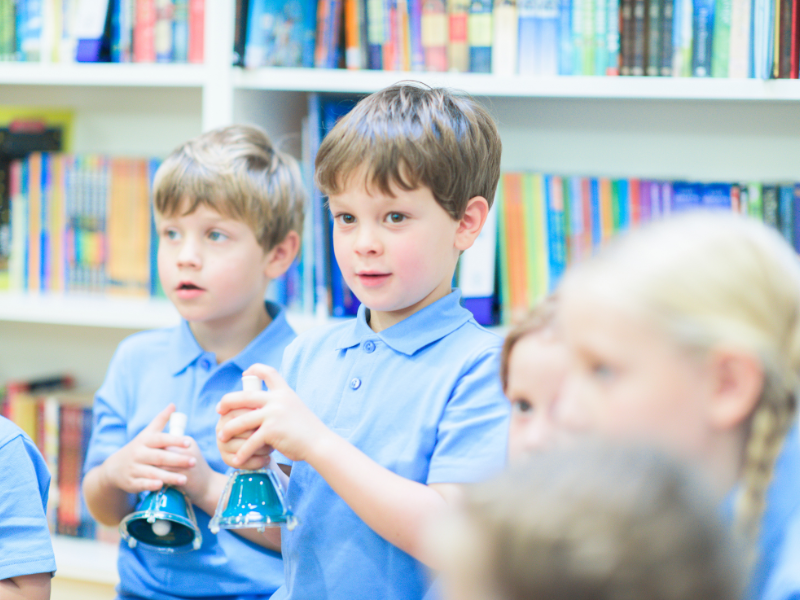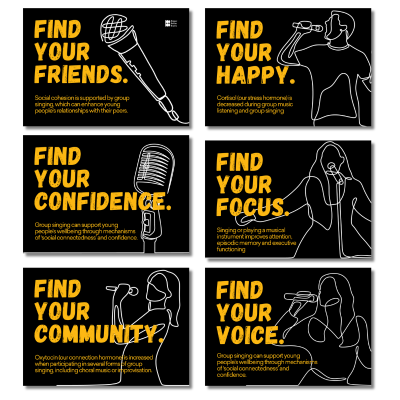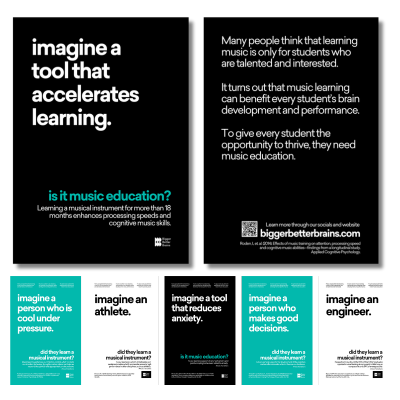
Research Updates

Here at Bigger Better Brains we believe that through educating yourself, you can then educate and affect positive change in your community.
With all of the research in the field of neuromusical science, our BBB Research section serves as a content hub for you. We regularly share findings and break down the latest research to educate and inspire discussion. We hope you enjoy this page on our website and share BBB news with your colleagues, parents and students.
Musical play is a must for preschoolers
What is musical play? Is it bashing on an upturned drum in the playground or banging pots and pans on the kitchen floor? Well, it can be both.
Music learning enhances executive function in preschoolers
After 12 weeks of 35 minutes of active music learning every day, randomly chosen preschoolers in the experiment group had higher scores on all of these executive function measures.
Hitting a drum helps preschoolers gain control
To get control of our inhibitory control, preschoolers might first need to get a hold of the beat!
Auditory roots of literacy skills
Here is a great article to take along to your next staff meeting or use as a discussion point with other teachers in your school, particularly if it is a primary or elementary school.
Joint music-making leads to more helping behaviour in 18-month olds
It may seem strange to think of a childcare centre that does not use music in some way. We know about the many cognitive skills that interaction with music can create for your children, but why do we have music in the first place?
Does music participation teach sharing?
Did you know there are many types of sharing? When you stop and think about it, there are many ways we can share a toy or food, but most of the time, as parents or educators, we would say something like “Let’s just be nice and share.”
When things get noisey do your ears shut down?
Our auditory processing system is possibly our largest information-gathering sense. It keeps us safe and it processes mountains of information without our knowledge. It also never turns off. But, sometimes it gets tired and a bit overwhelmed.
Background music ‘significantly impairs’ creativity
Do you use background music when you are completing a creative task? If you do, do you find that your creative output is better, more innovative or unexpected, or does the background music hinders these outputs?
What do 5 years olds learn in their weekly music lessons?
If you were to look at a standard weekly timetable for a kindergarten class, you would hopefully see at least one music learning class. This study looked at the regular 40-minute weekly sessions of music learning for kindergarten.
The effect of preferred background music on sustained attention
When we have to do a task, many people often choose to put music on in the background rather than complete the task in silence. The researchers found that “background music increased the proportion of task-focus states by decreasing mind-wandering states but did not affect external distraction states.”
Music sets preschoolers up for success
In a new study, it has been found that preschoolers who have better vocabulary and attention skills are more likely to do better at school. This is not a shocking finding. Early childhood educators have been aware of this connection and indeed school readiness programs focus on building both of these skills.




















